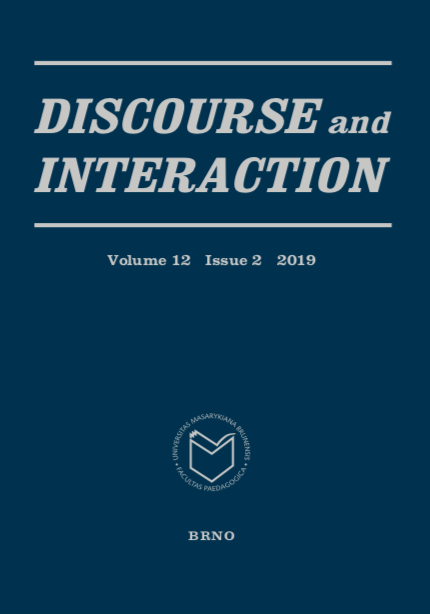Epistemic stance in the Kavanaugh confirmation hearing: Focus on mental and communication verbs
Epistemic stance in the Kavanaugh confirmation hearing: Focus on mental and communication verbs
Author(s): Magdalena SzczyrbakSubject(s): Pragmatics, Sociolinguistics
Published by: Masarykova univerzita nakladatelství
Keywords: communication verbs; confirmation hearing; epistemic stance; mental verbs; US Supreme Court
Summary/Abstract: This article reports on a study into the use of a subset of stance markers in the Kavanaugh confirmation hearing, and it reveals how the choice of these markers is affected by the speakers’ interactional roles and communicative purposes. It looks in particular at the ways the Supreme Court nominee and his accuser deploy “Believing” mental verbs (think, believe, understand) and common communication verbs (say, tell, talk) to orient themselves to the epistemic domain. The investigation also demonstrates how the questioners, i.e. the Senators and the prosecutor, manifest their attitudes. In sum, the analysis suggests that Judge Kavanaugh prefers external domains of reference (communication verbs) whereas Christine B. Ford favours internal domains of reference (mental verbs). In this way, rational and credibility appeals (logos and ethos) are juxtaposed with affective appeals (pathos). Consequently, it is posited, patterns with mental and communication verbs determine the degree of certainty projected by the testifying parties.
Journal: Discourse and Interaction
- Issue Year: 12/2019
- Issue No: 2
- Page Range: 72-94
- Page Count: 23
- Language: English

